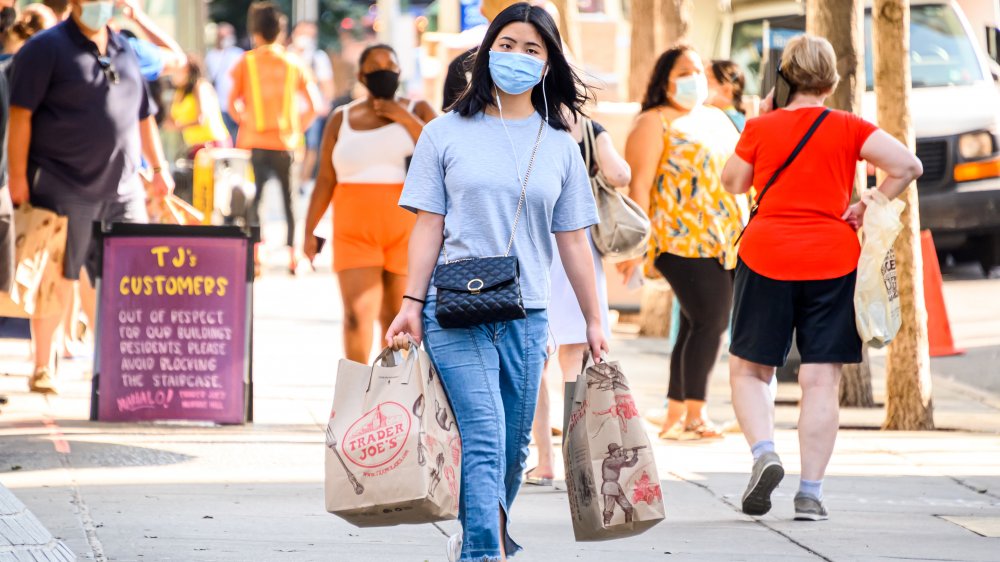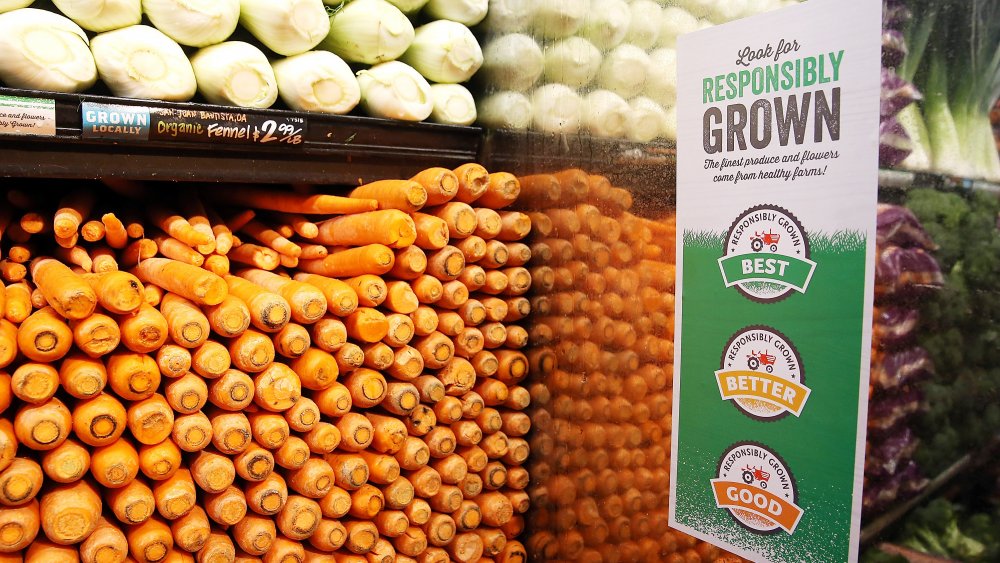The Reason You Might Want To Avoid Living Next To Whole Foods Or Trader Joe's
According to findings RCLCO Real Estate Advisors published on September 10, 2020, the correlation of fancier supermarkets and gentrification may have found yet another fact-based causation. Apartment buildings that host either a Trader Joe's or a Whole Foods on their ground floor saw an average increase in rental premium of 5.8 percent. This means that the average renter was willing to pay 5.8 percent more than the market rate for a building squatting upon these stores. These percentages represent a growth of over a percentage point since the last survey conducted RCLCO Real Estate Advisors in 2016, in which they found that people would pay 4.3 percent more for a Whole Foods and 3.1 percent more for a Trader Joe's.
These premiums listed above only reflect the very building that rests upon the store's ceiling. However, the neighborhood around the building would, over time, see rents go up as well for a few reasons. First, Trader Joe's and Whole Foods are stores that attract a more moneyed crowd. Second, and more importantly, the people who could afford the more expensive apartments above the store would encourage more expensive stores to appear in the neighborhood, because they, at least, could afford it. Essentially, Whole Foods and Trader Joe's are seeds for gentrification and will raise your rent.
A store's relationship with the whole community
Whole Foods' impact on prices has been repeatedly documented over the years. In 2019, Future of Food published an article detailing how the arrival of Whole Foods in Englewood, a neighborhood in Chicago with one of the highest levels of poverty in Illinois. While their intention was good, as seen by their concerted effort to hire from the local community and slash the prices of 30 staple goods in the middle of a food desert, the presence of a Whole Food still induced wealthier people and bougier stores to move and raise local property prices.
Similarly, Foodie Underground noticed back in 2014 that Whole Foods induced raised prices in previously unpopular foods, such as offal or kale, by virtue of selling them. This is especially true now when access to fresh foods is becoming increasingly limited, which makes produce a more luxurious product.
Trader Joe's also saw outcry against its brand in 2014. The International Business Times reported that Trader Joe's pulled out of Northeast Portland, one of Portland's poorest neighborhoods, after objections from the Portland African American Leadership Forum. The crux of their complaint was that the space was going to be used for gentrifying stores instead of affordable housing. Though, as the piece also notes, not all residents of the area were happy with the PAALF for doing this as they were looking forward to the new opportunities afforded by Trader Joe's.

